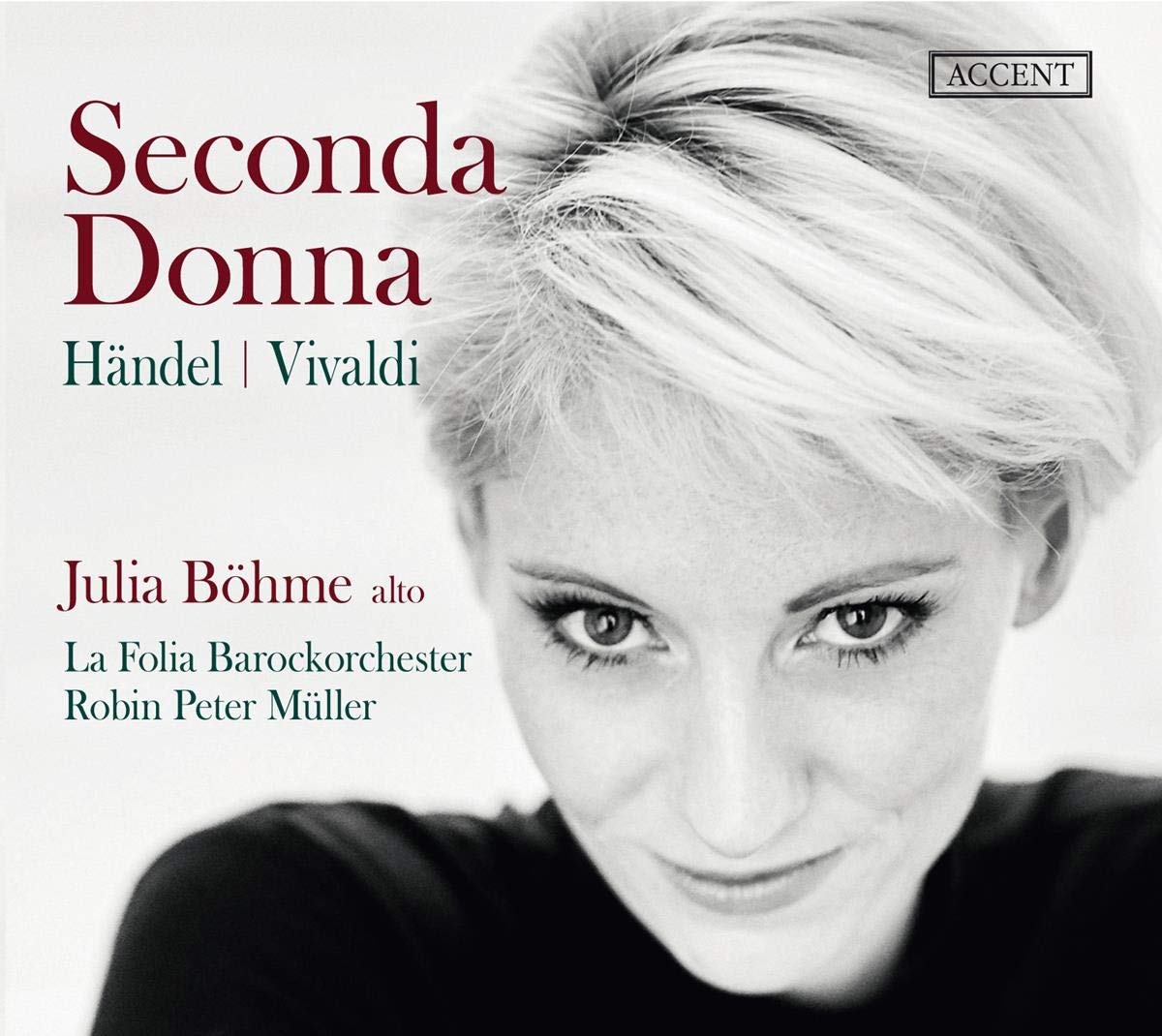Julia Böhme alto, La Folia Barockorchester, Robin Peter Müller
51:01
Accent ACC 24356
In a note so badly translated that it is scarcely intelligible, we are told that the women who played the part of seconda donna, or second woman, in 18th-century opera are both figuratively and often literally ‘Women in the Shadows’, the use of shadows then expanded into a discussion of the Baroque taste for chiaroscuro. The space taken up by this pretentious nonsense would have been far better occupied by telling us something of the singers who undertook roles that frequently complemented the prima donna in their opposition or rivalry to her. They are not even mentioned. In the case of Alcina in Vivaldi’s Orlando furioso (1727) one could even question whether the role is that of seconda donna. Originally sung by Anna Girò, Vivaldi’s brilliant young protégée, in her most ambitious part to date, this a multifaceted role that includes no fewer than seven arias, including the delightfully playful ‘Amorose ai rai del sole’ and lively ‘Vorresti amor da me’ included here.
Or perhaps we might consider the role of Matilde in Handel’s Lotario (1729). Wife of the usurper Berengario, she is far too positive to be considered a shadowy figure, rather is she ‘a veritable dragon without a redeeming feature’, to quote Winton Dean. Matilde was originally sung by Antonia Merighi, a contralto particularly noted for her acting and for whom Handel composed a number of important secondary roles. The range of her music is amply illustrated in this selection by two arias and the powerful act 3 accompanied recitative, ‘Furie del crudo averno’. In the bitingly sarcastic ‘Arma lo sguardo’, Matilde addresses both her son Idelberto and the heroine Adelaide, while ‘Quel superbo’ is a cantabile ‘simile aria’.
What we have here, then, might have thrown an interesting spotlight on some of opera’s mostly less than heroic women, but for that reason alone intriguing. That it is not, I’m afraid, is the fault of performances that never rise above the level of ordinary and are marred by the monochrome tonal palette of Julia Böhme, whose vocal acting and Italian diction are so poor as to project little idea of text. While her basic technique is sound, with well articulated passaggi, her approach to embellishment, both written and added, is often tentative and unimaginative. The support given by the La Folia Barockorchester, here pared down to one-string-per-part despite a booklet illustration that promises more substantial forces (if nowhere approaching the size Handel had at his disposal in London), is routine at best and too often merely pedestrian. In sum, a thoroughly disappointing CD.
Brian Robins
